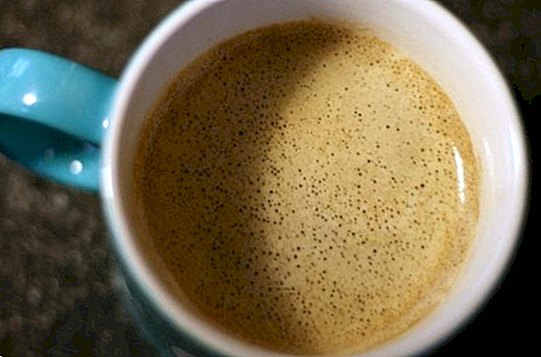Oats: properties, benefits and contraindications. Is it suitable for coeliacs?
The oats It is one of the most consumed cereals in the diet of many peoples for a long time, given that its special qualities, both nutritional and energetic, became the basis of the food of peoples and civilizations. For example, oat flakes are usually used for the preparation of exquisite porridge (also known as porridge), an authentic wonder full of health qualities.
For this reason, oats have been named as the "queen of cereals", since its contribution in proteins, vitamins, carbohydrates and nutrients is much richer than other common cereals. For example, as we will see below, it also provides very interesting antioxidants for the diet, and takes care of our nutrition in a very positive way.
Among other aspects, it could be said that it has carbohydrates, minerals, trace elements, proteins of high biological value, iron and phosphorus.
Although it has long been excluded from the diet for people with celiac disease, the latest scientific studies, as well as different experts in this disease disease, have concluded that oats, especially in its pure version and in controlled quantities, become one of the most important foods. valuable, being a nutritious and healthy food, with many qualities for health.
What is oats?
The grain of oats is obtained from a series of plants belonging to the family of the Poaceae, the most cultivated and common being the Avena Sativa variety.
As we will see, it is one of the cereals with a high protein intake, considered of good quality (high biological value), and its fats are tremendously healthy. That is to say, the oatmeal stands out for its contribution rich in proteins of great value.

Its incredible health benefits
Many are the experts who recommend taking oatmeal flakes at breakfast, since it provides nutrients and also gives a feeling of being "full" for a few hours, thus avoiding attacks of hunger. This was verified an essay carried out in 2015, which showed that instant oatmeal provided more satiety and reduced energy intake, compared with other options for breakfast.
Oatmeal is a recommended food in diabetes, because by maintaining more energy, the blood glucose does not increase so sharply, helping to stabilize and reduce blood sugar levels.
In fact, combined with yogurt and blueberries can become a breakfast as nutritious for health as complete, thanks to the different qualities it offers the body. But it does not have to be consumed only at breakfast. Did you know that in the snack can also become an ideal food ?.
In turn, it has softening power on the gastric mucosa, while maintaining the capacity of increase intestinal transit, because it contains both insoluble and soluble fibers.
It's about a natural diuretic, since it is useful when reducing the accumulation of fluid in the body, while reducing the extra kilos, thanks to the fact that it acts as a metabolic regulator.
Eating oatmeal regularly in a wide variety of recipes (such as porridge with blueberries or banana, oatmeal with yogurt, oatmeal cookies or typical bars) is a more than healthy recommendation during pregnancy, helps the development of the fetus, while during lactation, promotes the production of breast milk while providing vitamins and minerals.
It protects the body against arteriosclerosis, heart attack and hypertension, since its linoleic acid and fiber makes cholesterol does not pass into the intestine. This was found in this review of different studies published in 2013, and that noted the different benefits of grains and oat flakes in the reduction of blood fats, and the different qualities that it offers.
In addition, according to recent studies, oats could help not only increase libido, but also fertility itself.
As demonstrated in This studio Oatmeal is ideal for children, since a regular consumption of this food by the youngest of the house has been associated with a better intake of nutrients, the quality of their food is much better and more complete, and present a risk minor obesity (especially central obesity, considered the most dangerous).
Most important qualities, in summary
Although in the previous lines we have talked about the different benefits that oats provide, here is a summary of the most important aspects, which you should take into account if you want to consume it (or take it already):
- It provides satiety: thanks to its high content in complex carbohydrates, also known as slow absorption. This means that the oatmeal has an interesting satiating effect is much more prolonged, so in addition to helping in decreasing appetite is useful to control blood sugar levels (is, in fact, one of the most recommended cereals for diabetic people).
- Prevents and relieves constipation: due mainly to its high soluble fiber content, so oats are suitable -and advised- in people with constipation, since it facilitates intestinal transit, even improving it.
- Cholesterol at bay: thanks to its richness in essential amino acids (especially in methionine), is useful for people with levels of high cholesterol in the blood, since low-density lipoprotein (LDL) decreases. Also its contribution in omega-6 unsaturated fats helps to reduce this type of cholesterol and increase the good (HDL).
- Cancer prevention: contains lignans Y phytoestrogens, two substances that are useful to decrease those cancers related to hormones, as is the case of breast cancer.
- New fabric: thanks to the presence of good quality proteins, oats favors the production of new tissues in our body.
- Healthy cardiovascular system: it is ideal to reduce the fat present in the arteries, which translates into heart-healthy qualities for both the heart and the arteries.
Nutritional values of this cereal
Do you know what nutrients and other nutrients the wonderful oatmeal possesses? Take note:
- Oatmeal has important vitamins and minerals, among which are: vitamin B1, B2 and Vitamin E.
- It also has minerals: magnesium, zinc, calcium and iron.
- It contains a lot of carbohydrates and amino acids (specifically, six of the eight essential amino acids).
- We can not forget at this point of betaglucan, a component that absorbs both fat and bile acids from the intestine, helping to eliminate them naturally.

Nutritional qualities
- Rich in vitamins: it is a cereal especially rich in vitamin E and vitamins of group B (mainly in vitamin B1, B5 and B6).
- High mineral content: Highlights its content in potassium, magnesium, calcium and zinc.
- Rich in complex carbohydrates: 60 grams of oats provide 40 grams of slow-absorbing carbohydrates, easy to digest and provide satiety to the body.
- Interesting content in essential amino acids: as the leusina, isoleusin, threonine Y methionine.
Contraindications and side effects
At the moment, there is no evidence of contraindications for the consumption of oats, as long as it is consumed in the appropriate and recommended doses.
However, in high quantities people with celiac disease may have symptoms similar to those generated by the consumption of gluten, but not precisely because oats contain it.
In people who have allergies to cereals, or particularly to the oat plant, they may suffer from certain allergic reactions.
In addition, excessive consumption of oats can cause:
- Stomach and abdominal discomfort.
- Gases and flatulence.
- Headache.
However, if you do not have any type of contraindication and you want to introduce oats to your daily nutrition, remember that there are simple options to enjoy their qualities. Our favorite? The bowl of oatmeal cooked with banana, without a doubt. And if you dare, another delicious option is to add some cocoa powder and sugar free over the pieces of banana. You'll love it. Your contribution in potassium will be ideal for the first hours of the morning.
But if you do not have much time and want to have a quick breakfast, although it is not the most appropriate, you can prepare a natural yogurt, add a few oat grains on top, and accompany with peach jam or blueberries.
Is it suitable for people with celiac disease?
It is true that many people have doubts about whether celiac people can safely consume oats. In fact, it has always been considered that oatmeal contained gluten, so that it was completely eliminated from the celiac person's diet.
Thus, in 2009, the European Union included the oatmeal as a gluten-free food, but has certain peculiarities that make its consumption is not as safe as any other free food of it (as for example is the case of fruits or vegetables).
However, most of the times when a person is diagnosed with celiac disease, there is still outdated information, since one of the main advice given is that you can not take the 4 cereals that contain gluten (such as wheat, oats, rye and barley). But the reality is quite different.
Why? Fundamentally because while the other cereals with gluten have prolamins (vegetable proteins with high proline content, which we find in some cereals such as wheat, and which can be very toxic for celiacs) around 30-50%, oats alone reaches 15% of prolamins. It's more, it is estimated that the consumption of oatmeal could only adversely affect 1% of celiacs.
Therefore, the recommendation that today many nutritionists give is to avoid the consumption of oats at the beginning after the diagnosis of celiac disease, and proceed to its introduction later, little by little.
Images of Istockphoto See References Consulted
- Candida J. Rebello, William D. Johnson, Corby K. Martin, Hongmei Han, Yi-Fang Chu, Nicolas Bordenave, Jan Willem van Klinken, Marianne O'Shea and Frank L. Greenway (2015). Instant Oatmeal Increases Satiety and Reduces Energy Intake Compared to a Ready-to-Eat Oat-Based Breakfast Cereal: A Randomized Crossover Trial.J Am Coll Nutr. Available at: //www.ncbi.nlm.nih.gov/pmc/articles/PMC4674378/
- Prasad Rasane, Alok Jha, Latha Sabikhi, Arvind Kumar and V. S. Unnikrishnan (2013). Nutritional advantages of oats and opportunities for its processing as value added foods - a review.J Food Sci Technol. Available at: //www.ncbi.nlm.nih.gov/pmc/articles/PMC4325078/
- Carol E. O'Neil, Theresa A. Nicklas, Victor L. Fulgoni and Maureen A. DiRienzo (2015). Cooked oatmeal is associated with better dietary quality, better nutrient intakes, and reduced risk for central adiposity and obesity in children 2-18 years: NHANES 2001-2010. Food Nutr Res. Available at: //www.ncbi.nlm.nih.gov/pmc/articles/PMC4447723/



